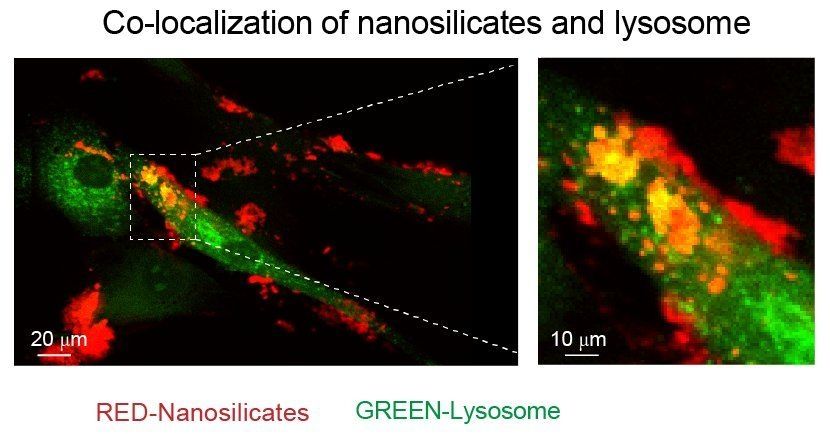Human stem cells have shown potential in medicine as they can transform into various specialized cell types such as bone and cartilage cells. The current approach to obtain such specialized cells is to subject stem cells to specialized instructive protein molecules known as growth factors. However, use of growth factors in the human body can generate harmful effects including unwanted tissue growth, such as a tumor.
Researchers at Texas A&M University have explored a new class of clay nanoparticles that can direct stem cells to become bone or cartilage cells.
Dr. Akhilesh Gaharwar, an assistant professor in the Department of Biomedical Engineering, and his students have demonstrated that a specific type of two-dimensional (2-D) nanoparticles, also known as nanosilicates, can grow bone and cartilage tissue from stem cells in the absence of growth factors. These nanoparticles are similar to flaxseed in shape, but 10 billion times smaller in size. Their work, “Widespread changes in transcriptome profile of human mesenchymal stem cells induced by two-dimensional nanosilicates,” has been published in Proceedings of the National Academy of Sciences this week.










Comments are closed.